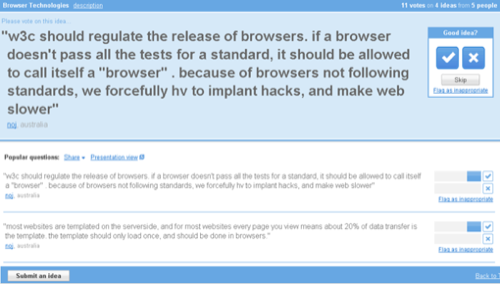The Google Code blog announced today the debut of yet another developer resource, this one focused entirely on making Internet browsing “as fast as turning the pages of a magazine.”

The new site will be all about performance, “from Internet protocols to the browser to website development.” When the Web is faster, the apps are faster; those idealist Googlers seem to think we should be browsing through pages, running complex apps, viewing enormous images, and streaming HD movies without delays or lag time of any kind.
Google’s main concerns are related to updating protocols such as TCP/IP and HTML, improving browser performance to keep up with JavaScript development, creating more responsive apps and better-optimized pages, and ensuring better broadband access for more people.
Along with the new site, Google released this video explaining their intentions:
As with many Google initiatives, this one will require cooperation between all kinds of entities, from ISPs to web standards organizations to individual developers to end users; and it will require an immense advocacy effort for, as one performance evangelist put it, “changes, enhancements, or even alternatives” to the current standards and protocols that make up the architecture of the web.
This initiative also extends to the mobile web, the unloved stepchild of the Internet that has suffered the bitter rebuke, “Perhaps next year will be the year for mobile,” for many years running. Google predicts a faster, better mobile web experience will lead to higher adoption rates and more mobile commerce.
Check out Google’s stable of articles on optimization, including Google videos and “Tech Talks” with speakers from non-Google organizations. Google’s also got a Make the Web Faster group, and Google Moderator is hosting a forum for performance-enhancing ideas and discussion thereof.

As web junkies and generally impatient people, we at ReadWriteWeb fully support the idea of a faster Internet. If the web was a bullet train, we’d be the kid asking, “Are we there yet?” after the first five minutes or so. We hope the efforts prompted by Google’s speed initiative impress us all.

















